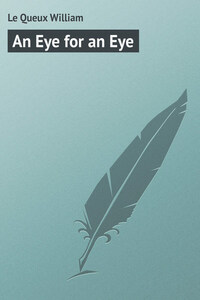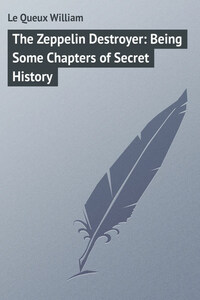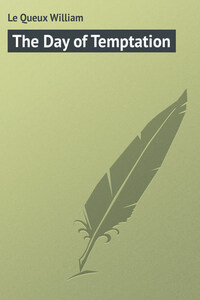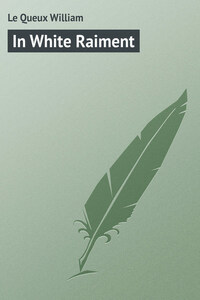Chapter One
The Mystery Man
“Hush! Think, if you were overheard!”
“Well, my dear fellow, I only assert what’s true,” I said.
“I really can’t believe it,” observed my companion, shaking his head doubtfully.
“But I’m absolutely satisfied,” I answered. “The two affairs, mysterious as they are, are more closely connected than we imagine. I thought I had convinced you by my arguments. A revelation will be made some day, and it will be a startling one – depend upon it.”
“You’ll never convince me without absolute proof – never. The idea is far too hazy to be possible. Only a madman could dream such a thing.”
“Then I suppose I’m a madman?” I laughed.
“No, old chap. I don’t mean any insult, of course,” my friend the journalist, a youngish, dark-haired man, hastened to assure me. “But the whole thing is really too extraordinary to believe.”
We were seated together one June morning some years ago, in a train on the Underground Railway, and had been discussing a very remarkable occurrence which had been discovered a few days before – a discovery that was a secret between us. Scarcely, however, had he uttered his final denunciation of my theory when the train ran into the sulphurous ever-murky station of Blackfriars, for the electrification of the line was not then completed: and promising to continue our argument later, he bade me good-bye, sprang out, and hastened away in the crowd of silk-hatted City men on their way to their offices.
He was rather tall, aged about thirty, with a well-cut, clever face, a complexion unusually dark, a well-trimmed black moustache, and a smart gait which gave him something of a military bearing. Yet his cravat was habitually tied with carelessness, and he usually wore a light overcoat except through the month of August. His name was Richard Cleugh, one of the sharpest men in Fleet Street, being special reporter of London’s most up-to-date evening paper, the Comet.
When alone, I sat back in the ill-lit railway carriage and, during my short journey to Cannon Street, reflected deeply.
The affair was, as he had said, absolutely bewildering.
Indeed, this chain of curious facts, this romance of love and devotion, of guile, intrigue, and of the cardinal sins which it is my intention to here record, proved one of the strangest that has ever occurred in our giant London. It was an absolute mystery. Readers of newspapers know well the many strange stories told in courts of justice, or unearthed by the untiring “liner” and the reporter who is a specialist in the discovery of crime. Yet when we walk the streets of our Metropolis, where the fevered crowd jostles in the mad race of life, there is more romance around us, and of a character far more extraordinary than any that has ever appeared in the public prints.
The secrets of London’s ever-throbbing heart, and her hidden and inexplicable mysteries which never get into the papers, are legion.
This is one of them.
In order to understand the facts aright, it is necessary to here explain that I, Frank Urwin, am myself a member of that ubiquitous and much maligned profession, journalism, being engaged at the time of the opening of this narrative as special reporter of a highly respectable London daily newspaper – a journal which was so superior that it never allowed itself to make any sensational statement. Its conductors as studiously avoided sensationalism as they did libel, and although we were very often in possession of “startling facts,” and “sensational statements” which would have sold the paper, and caused it to be quoted next morning up and down the country, yet we of the staff, forbidden to write anything so undignified, kept our information to ourselves, or, as was once rumoured, the office boy, a thrifty youth, went forth and calmly sold it to one of our more enterprising rivals. Hence, owing to the heaviness of its articles, which usually contained “chunks” of foreign quotations, and the paucity of its news, the paper was dubbed by its staff “the Magazine.”
Before being appointed to this pseudo-newspaper, where, by the way, work was light and remuneration good, I had been for several years engaged upon one of those enterprising evening journals who print their “specials” on tinted paper, and by reason of my constant investigations I had become well-known to the police, and perhaps something of a specialist in the revealing of hidden facts and the unravelling of mysteries.
Dick Cleugh was my most intimate friend, for we shared chambers in Gray’s Inn, a rather dingy and typical bachelor’s abode, be it said; but it had the advantage of being in close proximity to Fleet Street, and situated as we were, flying all over London clay after day, we could not afford to live out in the peculiarly journalistic suburb of Brixton. Our little flat contained a very sad and shabby sitting-room – in which stood a couple of writing-tables whereat we often worked, joining in, and re-echoing, each other’s imprecations – a couple of bedrooms and a small box-room which, containing a gas-stove over which the diurnal chops were fried, was termed by the Inn authorities a kitchen. We, however, irreverently termed it “the sink.” Old Mrs Joad, a worthy old soul who lived across in Fetter Lane, “did for” us, and was known as “the Hag,” on account of her














